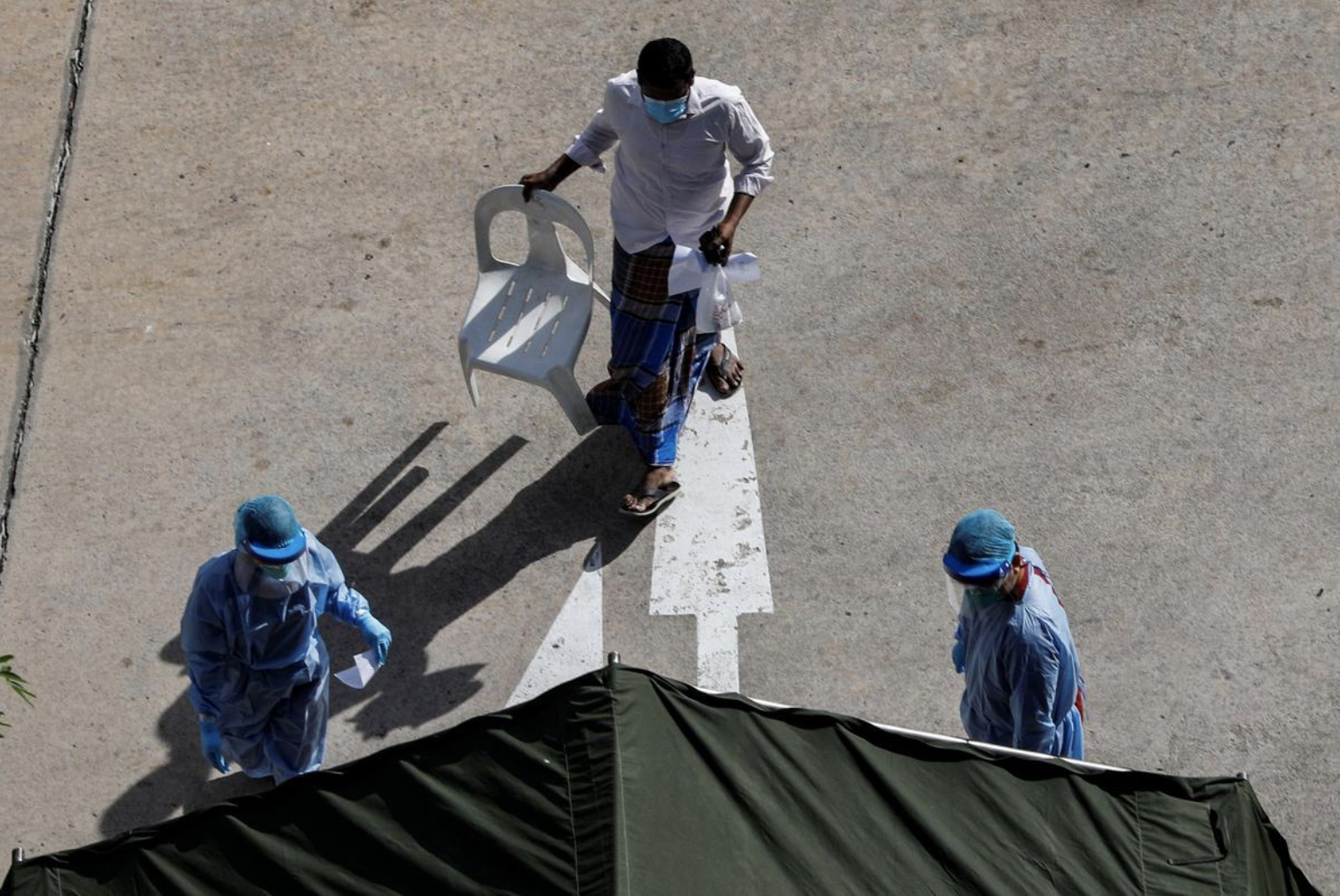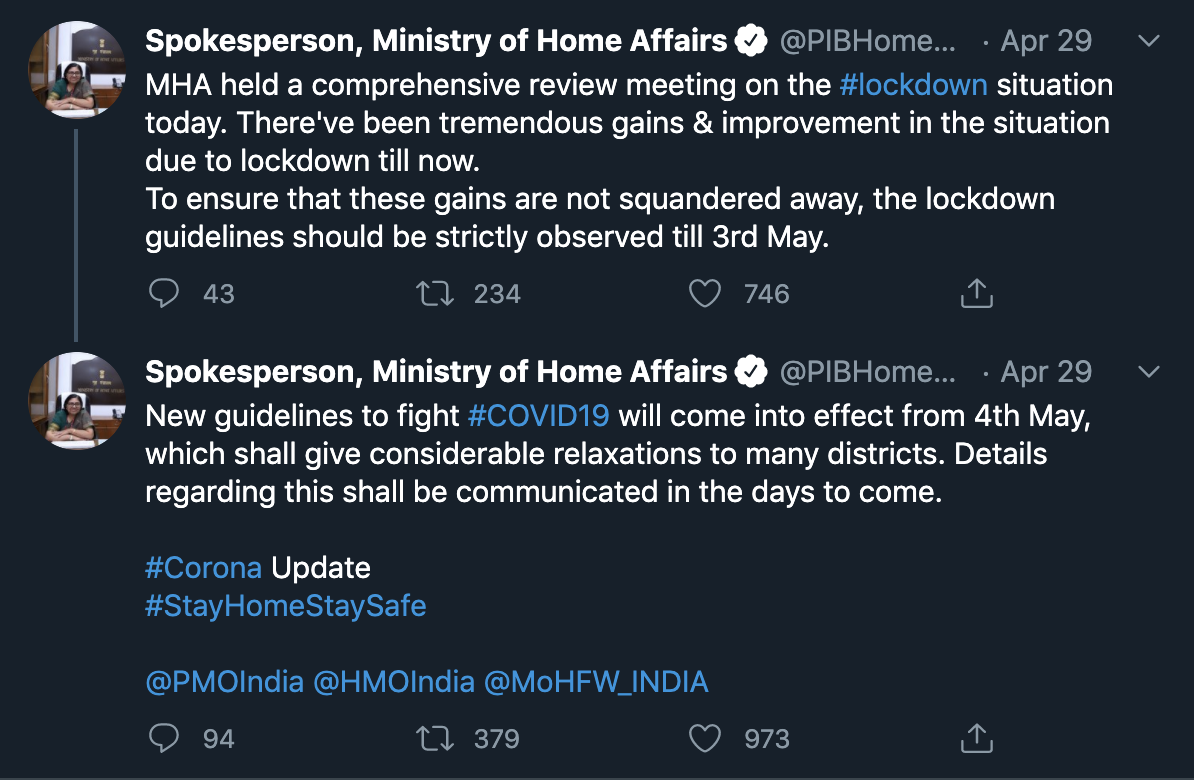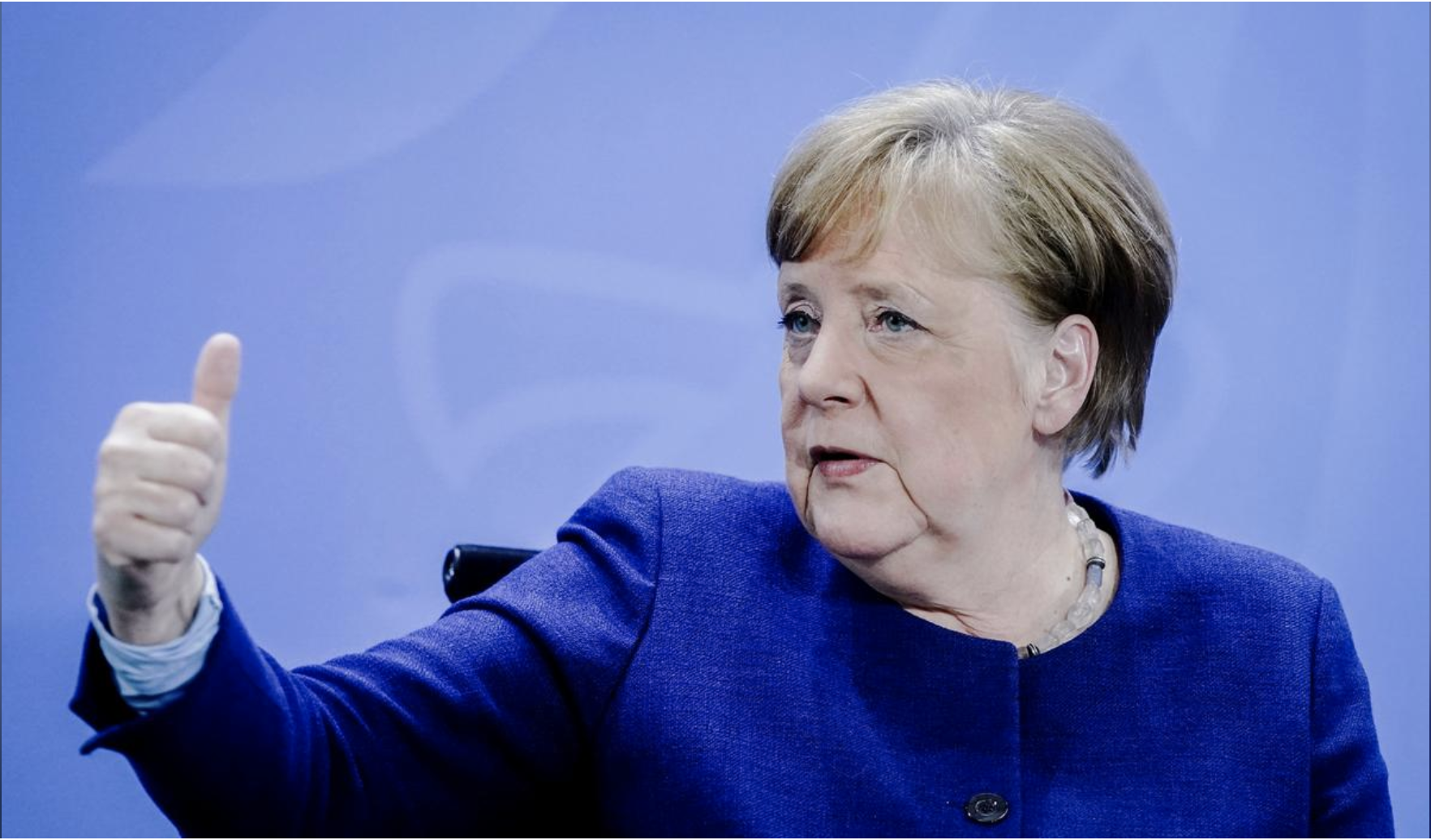Editor's note: This is the 51st article in the COVID-19 Global Roundup series. Here is the previous one.
As coronavirus continues to spread, countries are putting citizens under different forms of lockdown. Based on specific domestic situation, some countries are phasing out the lockdown, some others are ramping it up.
Japan is still pending on whether to extend its nationwide state of emergency after Prime Minister Shinzo Abe warned citizens to prepare for a "drawn-out battle" against the coronavirus.
The country's public broadcaster NHK said the government would make a formal decision on the state of emergency as soon as Monday after convening a meeting with experts.

Medical personnel bring a migrant worker into a tent at a dormitory amid the coronavirus outbreak in Singapore, April 29, 2020. /Reuters
Medical personnel bring a migrant worker into a tent at a dormitory amid the coronavirus outbreak in Singapore, April 29, 2020. /Reuters
Singapore government published a joint press release on Friday, announced an extension of its stay-home notice for foreign workers in the construction sector by two weeks.
There are an estimated 200,000 foreign workers living in Singapore's dormitories, where often 10 to 20 men are packed into a single room. As of April 28, these dorms were home to 85 percent of Singapore's 14,951 cases.
The joint press said the order is meant to "help to enable an eventual restart of the sector."
The UK Prime Minister Boris Johnson urged Britons to "keep going" with lockdown Thursday night as he prepares to signal curbs must stay until June at his first Downing Street briefing since falling ill.
In his twitter, he said that he "'understands the impatience" of people to end the draconian restrictions, but the current lockdown must be kept going as a new flare-up of the deadly disease would be worse.
Scottish First Minister Nicola Sturgeon made her point in Edinburgh earlier, saying she believed it would be "too early" when the formal review happens next week to lift restrictions "in any meaningful way."
She also voiced alarm that people were already starting to flout the social distancing rules – revealing traffic was up 10 percent in the past week in some parts of Scotland.
Meanwhile, London Mayor Sadiq Khan delivered a statement, warning there will be "no return to life as it was," which suggested Britons were going to need to adjust their lives for "a long period of time."

The Indian government has also hinted that its ongoing lockdown measures can be extended beyond May 3 but with "considerable relaxations" for people and services in many districts.
The Indian Home Secretary said that a "new guidelines to fight COVID-19 would come into effect from May 4, which shall give considerable relaxations to many districts", details of which would be communicated in the days to come.
The new guidelines, issued under the Disaster Management Act by the Home Secretary, specify the people and services exempted from the lockdown.
The home ministry spokesperson said at a comprehensive review meeting on the lockdown situation across India that there have been "tremendous gains and improvement in the COVID-19 situation due to the lockdown till now."
The Telangana state government has already extended the lockdown till May 7, while the Punjab government extended it for two more weeks beyond May 3.
Africa News Network (ANN) reported on Thursday that Mozambique had extended lockdown by another 30 days to stem the spread of coronavirus, which has been issued on April 1.
Mozambique's President Filipe Nyusi said the lockdown was extended as the positive outcome has been seen out of it. The president called on people to comply with the lockdown rules and mentioned that some citizens still go out for non-essential activities.
Mozambique has so far reported 76 infections, with no deaths, according to Hopkins Coronavirus Resource Centre.

German Chancellor Angela Merkel attends a news conference after discussing with German state premiers whether the regulations imposed to limit the spread of the coronavirus disease (COVID-19) need relaxing, at the Chancellery in Berlin, Germany, April 30, 2020. /Reuters
German Chancellor Angela Merkel attends a news conference after discussing with German state premiers whether the regulations imposed to limit the spread of the coronavirus disease (COVID-19) need relaxing, at the Chancellery in Berlin, Germany, April 30, 2020. /Reuters
Meanwhile, Germany will reopen playgrounds, museums and churches from Monday to go with the small shops that reopened this week and decide within days about schools and sports events as it eases its way out of lockdown.
But Chancellor Angela Merkel, buoyed by Germans' confidence in her leadership, warned that there was a risk of triggering a resurgence of the coronavirus if people dropped their guard and forgot about social distancing.
"We must work to make sure we bring the number of new infections down further," Merkel said. "If the infection curve becomes steep again, we need to have a warning system to notice it early and be able to act."
While Germany has the sixth-highest number of confirmed infections, at over 162,000, on a par with France and Britain, it has recorded around a quarter of their deaths, at just over 6,500.
Merkel's conservatives and their Social Democrat (SPD) coalition partners have also passed a 750-billion-euro (820 billion U.S. dollars) rescue package to mitigate the economic impact of the crisis.
Her chief of staff Helge Braun said social distancing measures – the requirement to wear face masks while shopping and on public transport and stay at least 1.5 meters from other people – would remain until at least May 10.
Germany's 16 federal states are also working on a plan to reopen bars and restaurants and allow some sport to take place.
Merkel said larger events such as concerts and major sporting events would not be able to take place before August 31.
The prospect of a return to some normality has been made possible by a fall in the number of infections to just under 1,500 a day, compared to more than 6,000 at its peak in early April.